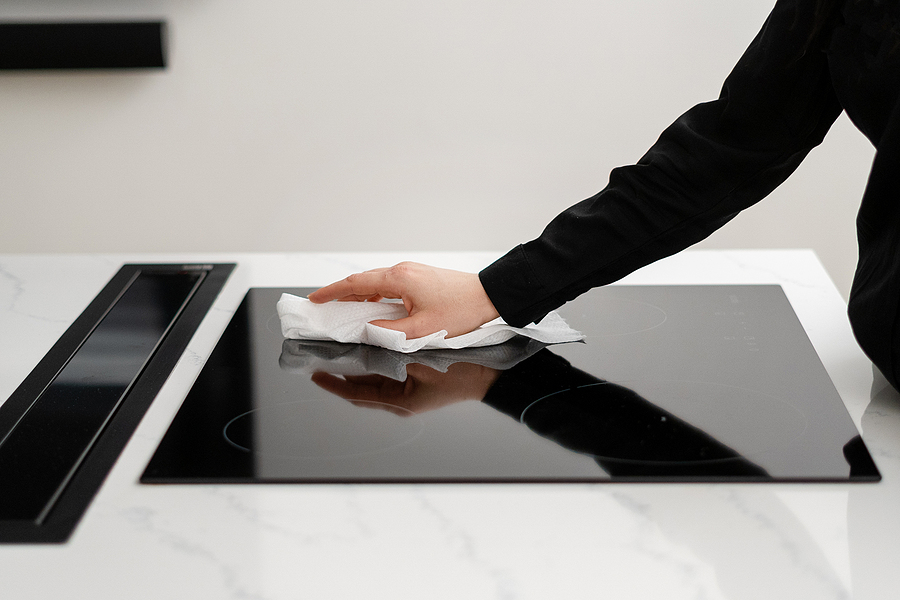Induction vs Electric Cooktop – Which is Right for Your Kitchen?
When it comes to cooking, the traditional debate has always been gas or electric – which is the better cooktop? No matter which side of the debate people are on, they typically hold fast to their choice. Now, the induction cooktop has been thrown into the mix and switched up the debate. Wondering which one will come out on top? Let’s take a look at the induction vs electric cooktop and see what each has to offer.
The Induction Cooktop
The induction cooktop is the appliance most people are the least familiar with, so we figured it was a good place to start. Although both use electricity, An induction cooktop heats food differently than an electric cooktop.
Beneath the smooth surface of an induction cooktop, there are copper coils. The copper coils create a magnetic current with the cookware sitting on the cooktop’s surface. The current allows the heat to be directly transferred to the cookware, unlike an electric cooktop where the heat is transferred from the coils to the cooktop and then to the cookware. When comparing an induction vs electric cooktop, the induction cooktop heats the cookware evenly and consumes less energy.
With the debate about gas vs electricity, one of the benefits of gas is that it heats up faster and cooks food more evenly. Some individuals still prefer an electric cooktop because of safety concerns. Even though the amount of carbon monoxide is extremely minimal, it is enough to have some people choosing an electric cooktop. The open flame is also sometimes a concern in a household with children. However, electric cooktops can remain hot long after the burner is turned off, which can also become a safety issue as smooth cooktops often double as counter space in smaller kitchens.
Pros and Cons
With an induction cooktop, neither of these issues is a concern. There is no carbon monoxide emission as with gas. Once the cooktop is off, there is no residual heat as the induction heats the cookware and not the cooktop. Also, induction cooking, like gas, is more responsive to cooking temperature adjustments than electric. If you’ve ever cooked on an electric cooktop, you may have experienced the need to remove cookware from the burner until it cooled down to the adjusted temperature. The direct heating of the cookware also reduces cooking time and is more energy-efficient.
When comparing an induction vs electric cooktop, induction cooking offers some great advantages. However, there are a couple of disadvantages you may want to consider.
An induction cooktop is more expensive than an electric one. The main reason for this is that the inner workings are more complex. Also, as with any new technology, fewer were sold when they initially became available. This kept prices higher. However, in recent years as they have begun to increase in popularity, the prices have started to come down.
Not all cookware is compatible with an induction cooktop. How can you tell if your cookware will work? If it’s not marked on the bottom, you can use the magnet test. Hold the magnet against the bottom of your cookware. If it sticks, it’s compatible. If not, you’ll need to get new cookware to use an induction cooktop.
The Induction vs Electric Cooktop – Still Undecided?
If you’re still on the fence about which type of cooktop is best for your kitchen, the experienced staff at Jersey Coast Appliance can help you make an informed decision. We will walk you through the pros and cons of each and help you decide which type of cooktop would best suit your needs.
We carry all the top brands. You can check out our online selection if you’d like to do a little research before coming in to shop. Whether you know what you want or are still undecided, our knowledgeable sales team will be happy to help. Contact us or stop in today!








